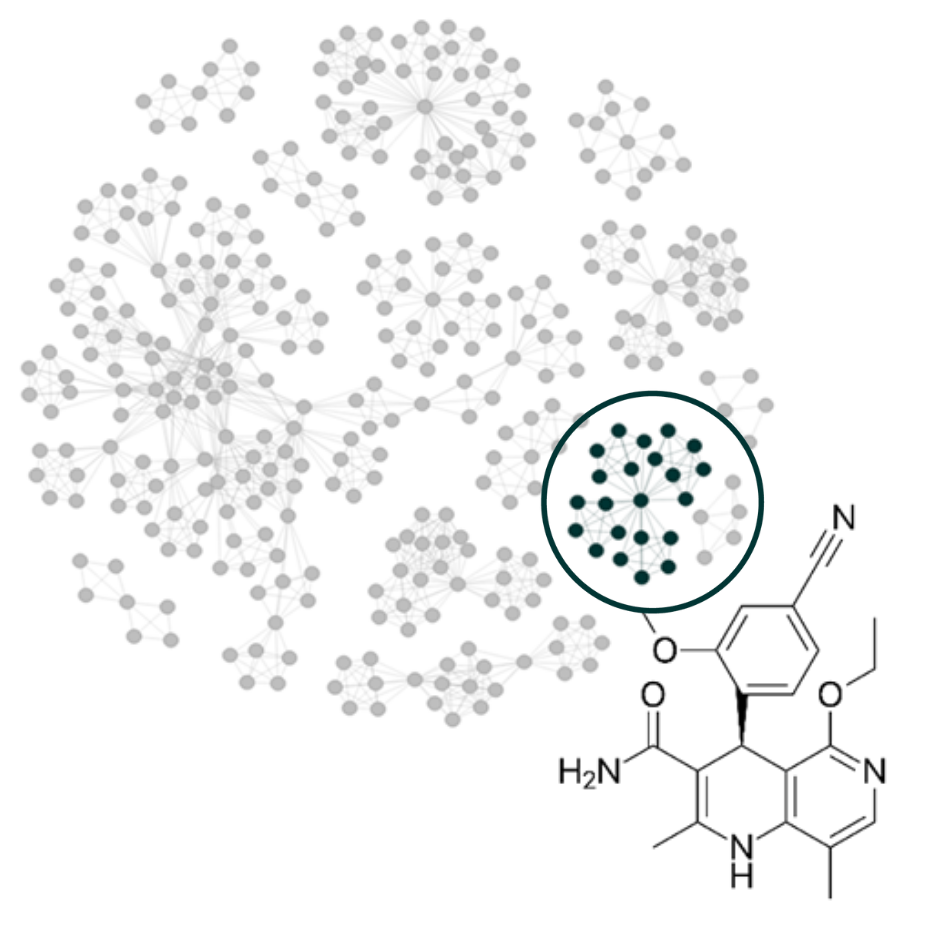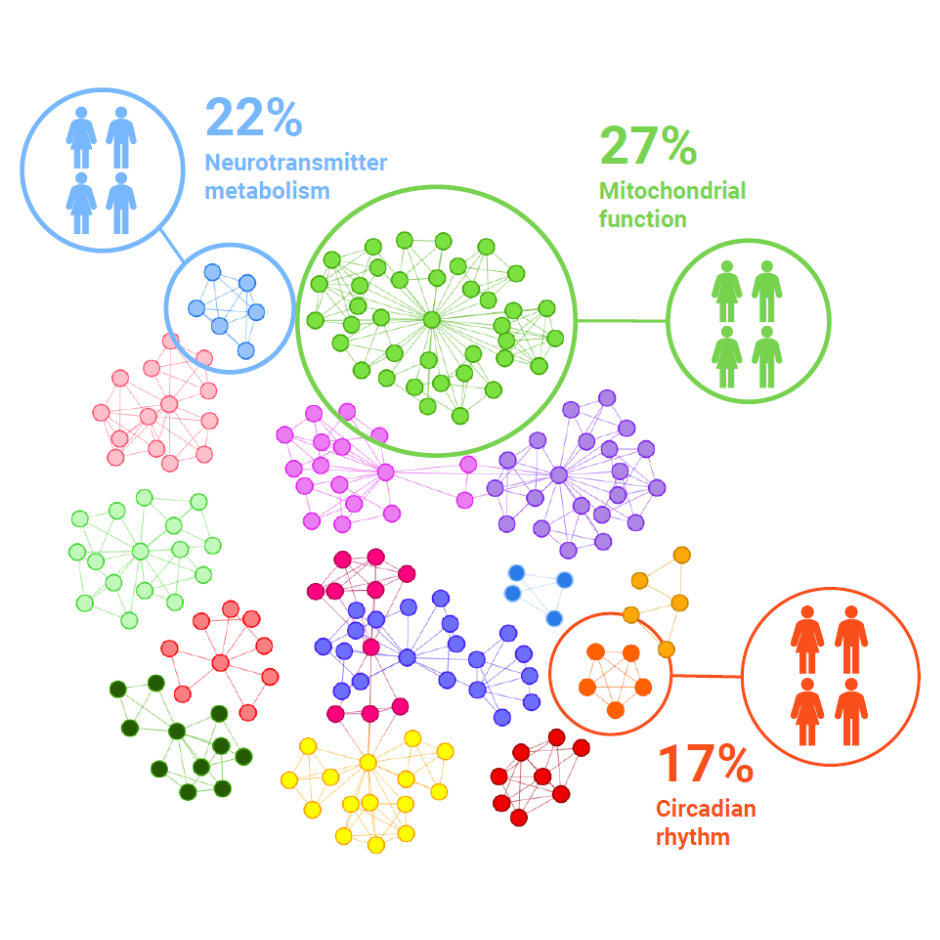Patient Stratification Biomarkers
The foundation of precision medicine in complex diseases – revealing who to treat and how

From biobank to bedside
Understand the biology
We identify the causal mechanistic drivers of complex disease biology.
Find the biomarkers
We discover biomarkers that stratify patients with those underlying mechanisms.
Reduce to practice
We reduce these biomarkers to clinical practice in the form of highly-scalable genotyping tests for rapid, low-cost patient stratification.

Mechanism-based biomarkers
At the center of our approach are mechanistic biomarkers.
Our biomarkers stratify clinically relevant patient subgroups by the mechanisms of their disease and/or treatment response.
With this stratification we accurately match patients to drug targets, clinical trials, and treatments with unprecedented genetic evidence.
We've discovered mechanism-based biomarkers for all clinically relevant patient subgroup in over 60 diseases and hundreds of disease endotypes.
![]() Improving disease prediction, diagnosis and treatment
Improving disease prediction, diagnosis and treatment
![]() De-risking drug discovery, development, and launch
De-risking drug discovery, development, and launch
Mapping patients to the right clinical trials and treatments
Our mechanistic biomarkers maximize clinical value at every stage of healthcare and drug development.
In healthcare
PrecisionLife biomarkers support accurate diagnosis, triage, and personalized treatment selection by identifying patients based on the molecular mechanisms driving their disease. This enables more precise, effective, and cost-efficient care.
In clinical development
We help design faster, smaller, and more successful trials by identifying 'super responder' subgroups and providing companion diagnostic biomarkers that accelerate regulatory approval and market access for new therapies.
In drug discovery
Our patient stratification biomarkers help de-risk target selection by validating mechanistic relevance in specific patient subgroups. This informs a target’s product profile, prevalence, druggability, expected clinical efficacy, and commercial potential.
.png?width=683&height=683&name=Mapping%20patients%20to%20the%20right%20clinical%20trials%20and%20treatment-min%20(1).png)

Clinically actionable insights
Our biomarkers are reduced to clinical practice as highly-scalable, low-cost and non-invasive mechanostic tests based on widely accepted genotyping arrays.
Mechanostics® rapidly determine an individual's disease risk and underlying disease mechanisms:
Optimizing clinical trial design and patient recruitment
Screening populations to identify at-risk patients
Enabling fast and accurate differential patient triage
Guiding diagnostic decisions and treatment selection
Accelerating market adoption of new therapies in companion diagnostics
Discovering subgroups in diseases with no known genetic associations
Mechanism-based patient stratification biomarkers accurately predict patient subgroups and their responses to treatment even in diseases with no previous genetic associations.
An example is our study in ME/CFS (myalgic encephalomyelitis / chronic fatigue syndrome), a highly heterogenous disease that is debilitating for millions of patients, costing billions of dollars.
30 years of international ME/CFS research had yielded no effective diagnostic tests, disease modifying treatments, or reproducible genetic associations.
That was until we analyzed genotype data from 2382 patients to find 14 novel genetic associations – enhancing disease understanding and enabling mechanistic stratification of it's biology for the very first time.
In the figure below, the green patient subgroup (27% of cases) was found to have a specific fatigue presentation due to defects in mitochondrial respiration.
Only ME/CFS patients in this group will respond to a drug targeting that gene. Patients with other disease mechanisms will respond to different drugs.
For example, the blue subgroup (22% of cases) whose ME/CFS is mediated by genes involved in neurotransmitter precursor transport and show symptoms that include cognitive impairment.
These findings highlight how mechanistic stratification and the biomarkers to identify the right patients is essential for improving drug development and healthcare.




